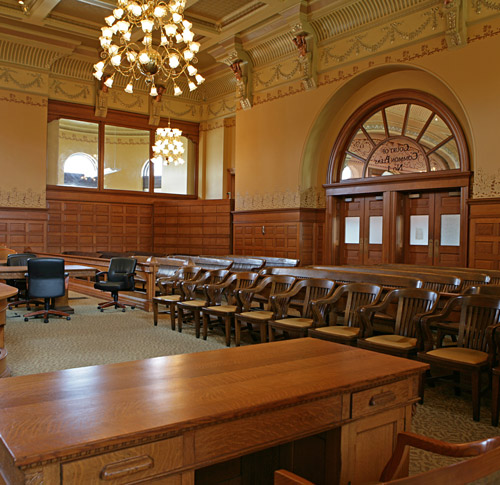Criminal Appeals and Motions for New Trial
Direct Appeals

After trial you’re automatically entitled to what is called a “direct” appeal of the verdict at your trial.
With a direct appeal you are limited to what is called “the record,” which consists of your trial transcripts and other documents and events that were part of your case up to the time of trial. For many cases this is enough, and the Appeals Court can decide whether there were any errors that warrant reversing your conviction.
Motions for New Trial
But for other cases, being limited to the trial record is not good enough. That’s where motions for new trial come in, where we are able to actually add evidence to the record.
Sometimes it’s evidence that your trial attorney might not have uncovered, or maybe they didn’t understand the importance of it. Sometimes it’s evidence that is new and was unavailable at the time of your trial.

Successfully litigating motions for new trial takes a different skill set than regular appeals, and story telling is a key component.
I have particular experience litigating motions for new trial in sex offense cases. From working on nearly one hundred Sex Offender Registry Board cases I’ve learned to recognize the cases that “just don’t sound right.” If you think you have one of those cases, I might be able to help spot issues that could be raised in a motion for new trial even if you’ve already lost your appeal, or never had an appeal at all.
Case Results
Our client was found guilty of a sex offense after trial in superior court. A review of the trial transcripts and discovery revealed that his attorney provided ineffective assistance of counsel by failing to hire an expert…
Our client had been convicted of a fourth offense for operating under the influence and was sentenced to two years in prison when we took over his case on appeal. A review of the trial transcripts and record revealed that the client had a viable motion to suppress his statements that his trial attorney never pursued. We filed a motion for new trial, and the district court allowed the motion and vacated the conviction. Our client was able to return home to his wife and children a year before his sentence was supposed to end.
The Appeals Court reversed our client’s convictions for indecent assault and battery on a person under the age of 14 when the trial court erroneously admitted the complainant’s medical records into evidence at his trial, and the prosecutor made an improper closing argument which unfairly bolstered the credibility of the complaining witness.
GPS monitoring is a standard condition of probation for most people convicted of sex offenses. We were able to convince a judge that it was not appropriate here because the unique circumstances of his case did not warrant GPS monitoring.
The Supreme Judicial Court upheld the trial court’s allowance of our motion to vacate our client’s plea where his attorney gave him bad immigration advice. The SJC rejected the Commonwealth’s contention on appeal that a trial court should not have relied on affidavits and affirmed the trial judge’s findings that the evidence we presented at the evidentiary hearing was sufficient to meet our burden.
